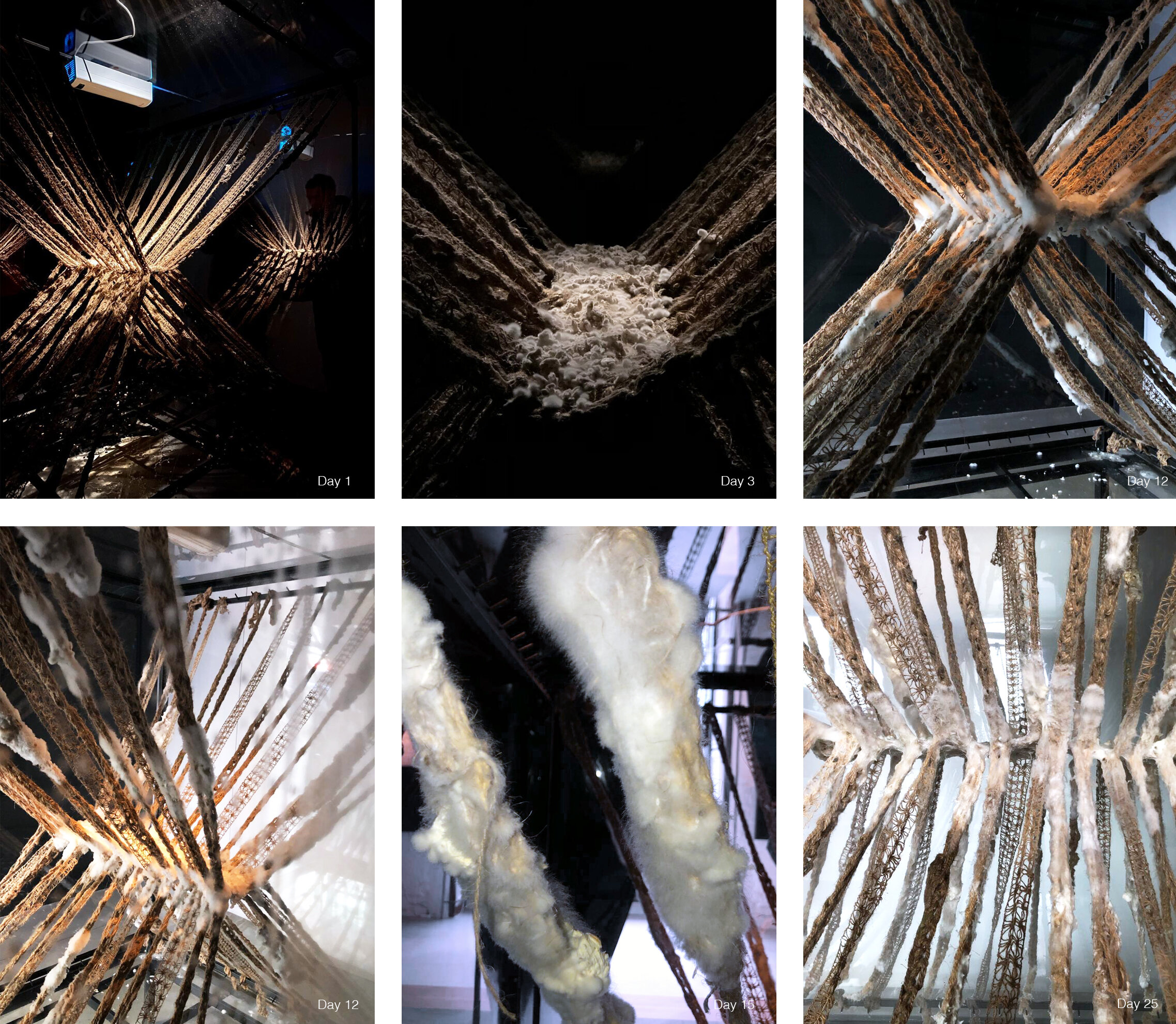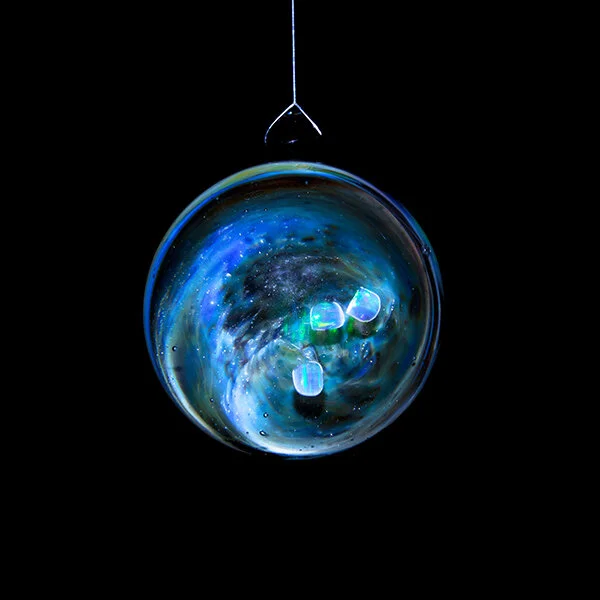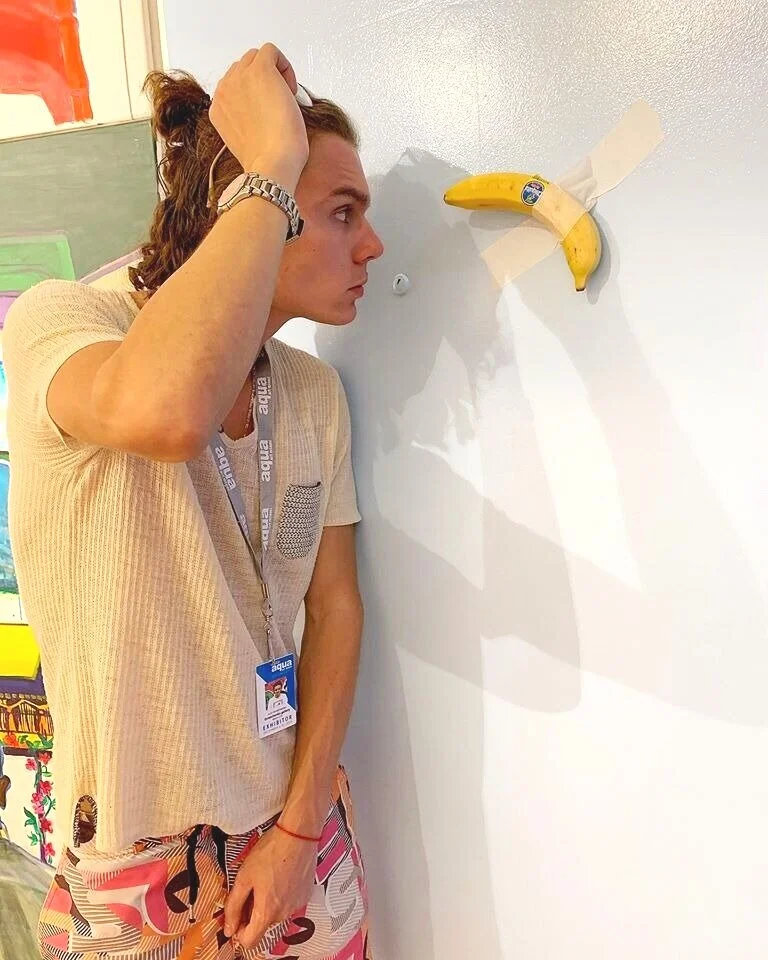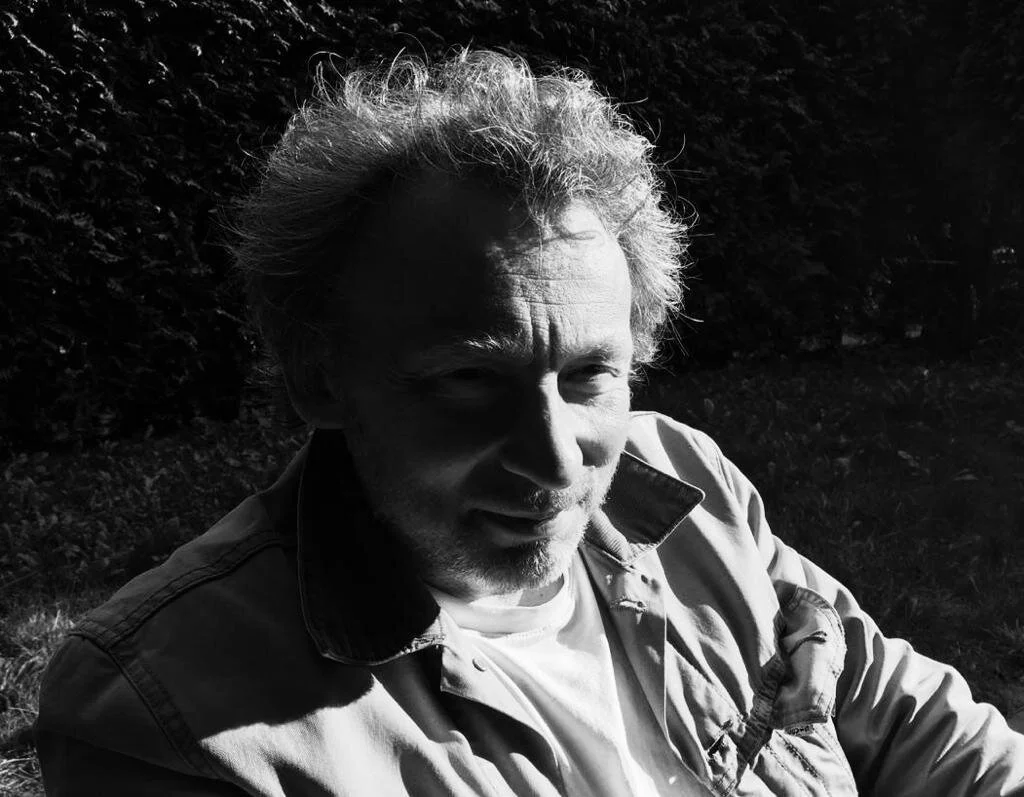Katya, artist and architect
Some people are just hard to label. Katya Bryskina (b. 1988, St. Petersburg) is, happily, one of them. Trained as an Architect, she is now an Artist working with technologies. Mixing art, biology, robotics and design with the sense of space and the interest in future cities she developed in her education, she works between Russia and the rest of the world, wherever her research and projects take her. Her very driven personality and structured schedule could have you expect a cartesian mind. Quite the contrary, it was a pleasure to embark on a spiritual quest with her.
In a podcast, French artist Clémence Vazard said that being an artist is being a step ahead. Not because you are more clever, but because you dare look into the darkness ahead of us and light the way. Katya is absolutely true to this definition.
So Meet Katya, an outstandingly rich human being, and dive into her artistic experiments for a better future.
Can you introduce yourself ?
I was trained as Architect. Now I’m am mostly an Artist. Architecture does not offer me enough space for real creativity. It was never enough for me. That’s why I have moved on to more artistic projects where you can experiment or go much further in the conceptual sense. I have a strong interest where art, technology and biology meet. What kind of future can we build with those tools ?
What or who inspires you ?
Dr. Michael Weinstock, professor in Architectural Association. He brought a lot in the field of emerging technology and design, as well as scientific experimentation in architecture. He changed the way I work by teaching me to question everything and to accept that experiments can fail. If you really want to try and innovate, you need to accept the fact that you can fail or succeed at the same time, that you need to test everything. It really was a basis for my future ideas. A project is always about the Dream - where I wanna go - and how I will develop the idea - which can lead to something different.
How do you seek for and find inspiration ?
It is quite natural to me – I wake up excited about something every morning.
I don’t believe that inspiration comes and goes. It is an ongoing process. I have some periods when I just collect information and learn new things. When big ideas come, it is like they pass through me, I don't feel like they come from me. Then comes a long time of development. It's like looking through transparent glass and try to clean it – you find out a direction and then clarify the picture behind it: what is the whole story ? How multilayered can it be…?
Also a lot of inspiration comes from conversations I have with friends and people who work in the same or similar areas. It is always a sort of combination of information collected from travelling and connecting with different people. I am lucky to work with different teams I can discuss with worldwide.
What about your work environment ?
Where my computer is, where I can charge it, I can work.
I also understand my limits in terms of traveling. To generate new ideas – I need to be in a familiar space, where I have lived, or I come back home to my apartment in Saint Petersburg, where a lot of ideas were born.
Sometimes I need a quiet time, some kind of closedown. It is a kind of meditative state in which I can think through. Because when I'm traveling I get too excited : too much stuff is happening for me to focus.
My friends are joking that Quarantine is a my regular lifestyle ☺ It is partly true : in my apartment, one room is my studio, the other one a private room. So going only from one room to another is kind of usual to me.
How do you manage your time?
I think I’m kind of rational.
Every morning I wake up and meditate, do my exercises, then eat. Everything has its system, which I really try to follow. I schedule everything, because more and more things are coming up and I need to preserve the space for me to create. It's all about self-organization.
But at the same time if I randomly feel like going somewhere – I go. It's kind of a really normal thing for me.
Before, I sometimes wished to just shut down and have a rest. Now I follow the rule “to speed up – you need to slow down”. I try to give myself time to rest and slow down instead of flying nonstop and meeting new people every week in a new country. Now, I try to fly once in a month, twice maximum, to not over-do things. You actually produce more if you are careful about those things.
It can seem very rational and thought-through. In fact this organisation came with tryings and failures. Every failure brings you to a new understanding. The main thing I've understood is that I need a team to do big things. What is amazing in working with a team is that what I don't like doing, somebody from my team will enjoy. That's how you can develop successful projects and exhibitions. Teamwork is what I’ve learned about the most.
What is your creative process?
A really good friend once explained to me that I’m a very risky person. I would say that it's just in my nature – I will always just go for things. I just design experiments or ideas that I want to test. Then I go through them step by step. Sometimes they're worth something, sometimes they're not. It has really taken me time to accept that process. I know how to play safe with an idea, how to turn it into a good design. But I won’t go in that direction if I don't feel excited about it. It usually feels right when you are someway in between – not too bored and not too excited. I try to navigate in between the two: being excited to test something new, and not getting bored because I know I'm not taking risks.
The development of an idea is made of different components: trying to solve it technically, find magic in it, and build a story around it.
Do you feel as an entrepreneur?
Not really. To be an entrepreneur, you need to focus on one product and develop it. I’ve tried. But the start-up transformed the artistic idea into a completely new product.
I prefer the studio-work process and being able to work on different projects.
And what are you working on ?
I haven't done architectural design for a few years but I am still so interested in Space design. What kind of space will exist in the future and what kind of future will it accommodate ? I try to answer by taking an artistic posture. It's always a tenuous line between an architectural approach and a totally artistic and experimental one.
My research is about how we can work with nature to create very unfamiliar things for us as a result of interaction between human and nature. Hence a vision of space: what kind of cities and structures can we build from these interactions ?
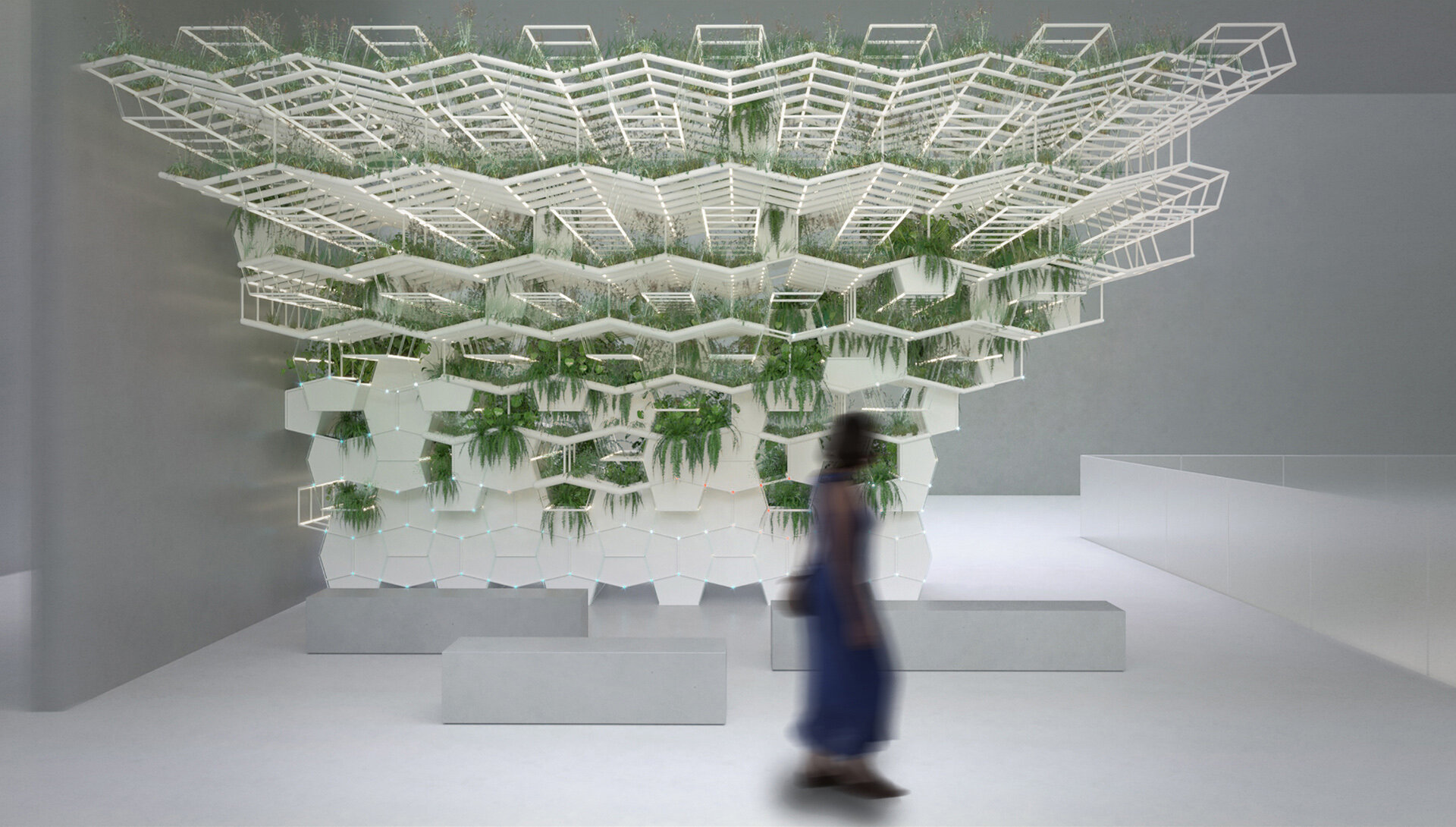
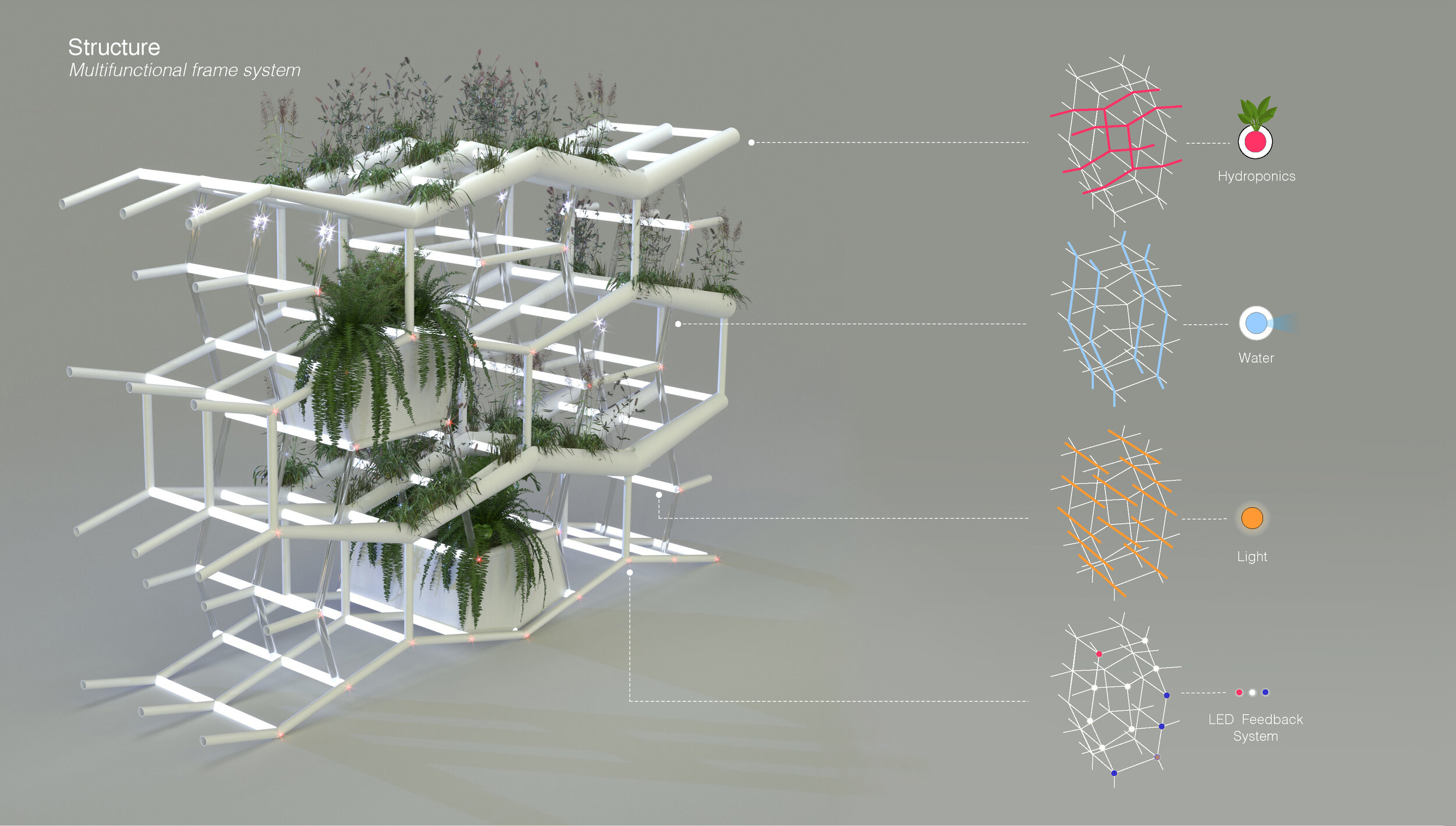
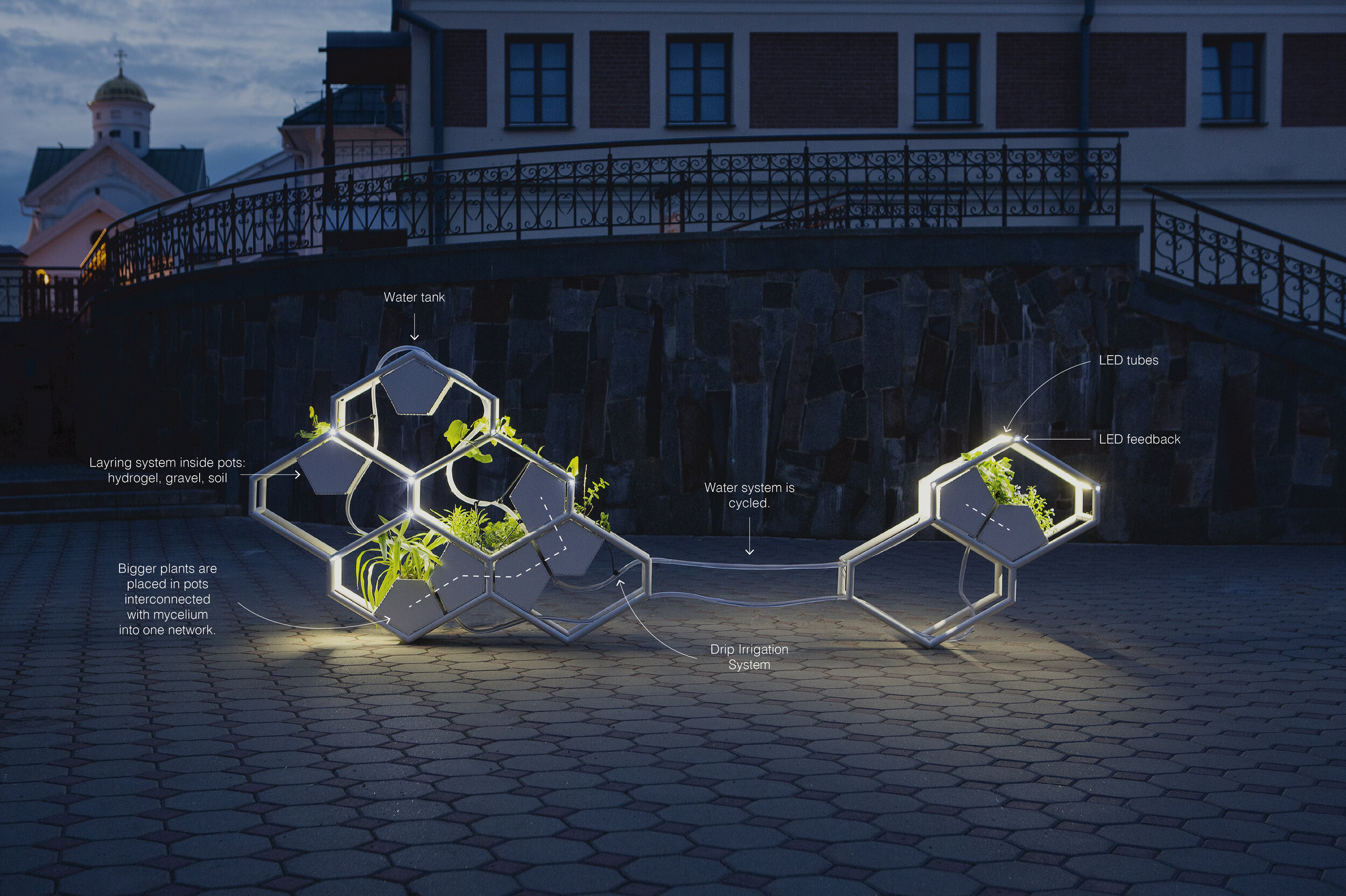
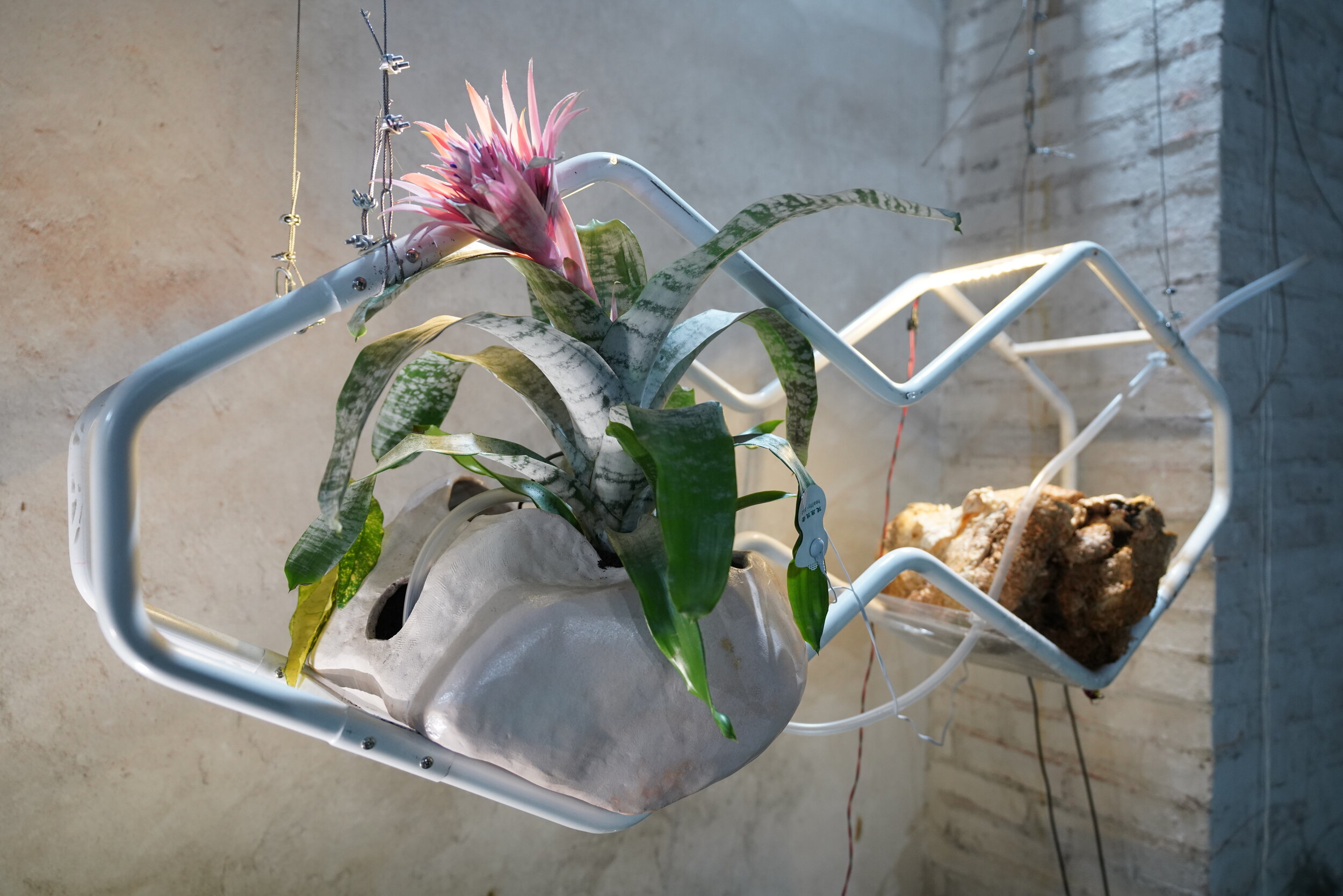
by IM-A studio (Intelligent morphology in Architecture)
I am now exploring with Mycelium (the root-like fibrous material of fungus, mostly composed of chitin). I create environments and structures in which I think this organism can grow. Then the organism performs partly as expected and partly in a completely differently way.
Future is about designing new ecosystems. That's probably how we will start building in the Future.
Art&Science
Your projects are always somewhere in between design, architecture, technologies, research... What technology do you usually use in your work?
I use quite a lot a different tools and I do not to limit myself to any. You can always find somebody to collaborate with. I’m not really interested in being an expert in just one aspect. At the moment, I’m trying to work with Biology and nature as well as with technology, when I program robots to make do something. I work with bio-organisms like Mycelium as I’m interested in integrating biology into art.
It all started with me chatting with my friend, a quantum physicist in London, complaining that I couldn’t find a biologist to work with me on that project. He told me “There is nobody, you’re the one who should learn how to do it”. So I learned quite a lot about the process and experimented at the studio.
Scientists say that with Art&Science, Art makes Science more popular. I completely disagree with it. Science mainly develops useful applications. Artists ask slightly different questions.
I'm really interested in New Fabrication, how an artistic approach could help develop new production methods.
Do you feel part of a tradition, like Leonardo da Vinci? Whose art&science steps are you following ?
It depends on the project. But as far as the process is concerned, my main inspiration is Neri Oxman, professor at the MIT Media Lab, along with Tomas Saraceno and Olafur Eliasson. I think Neri Oxman’s approach of bringing nature on the table, even creating the term “natureing”, is quite amazing. Her ideas are very big.
Bioart is very often forgotten when it comes to art&science. Why ?
I don’t think we should isolate Bioart as such. Because there is always some bio-aspect in technologies. I would say that it all comes together in art&science. So I’m always very careful whether I should tell people that I work in bioart or not. But what we define as Beauty in Art is ever evolving and I think that Bioart is part of this aesthetic change of representation.
Why did you choose to explore it ?
We still have so many questions about how things work on our planet, how nature works. It’s an unlimited source of inspiration, something much bigger than us, as the Universe. You cannot pretend that any technology will ever compete with it. You just draw inspiration from it, and then with technology, you build something with a new form. But the most complex systems are all based on Nature.
Do you feel like you are part of a generation of creators in contemporary Russia?
I don't separate Russia from the rest of the World. Most of my projects are not in Russia. For 6 years, I was completely out of the country, visiting once a year. The last 2 years, I spent probably 40% of my time in Russia. I’m very happy to bring my knowledge back. I cooperate with Strelka Institute, where I do lectures and workshops. I was also part of an amazing program, The New Normal, where we spoke about the Future in the context of speculative urbanism.
Liform Mycelium process exhibited at Orekhov Gallery in Moscow.
I'm also really happy that the experiments with my bioproject were recently exhibited in Russia, first with the Anna Nova Art Contest in Saint Petersburg, then in Orekhov Gallery in Moscow. We brought a living organism into a gallery space and I wouldn't have expected it to happen in Russia first… Now I am working to bring this project to a few places in Europe.
Do you think Russia offers a special and promising context for art&science projects?
I think it can. There are quite a lot possibilities here. But at the same time it is still not easy to find budgets to make projects like mine happen here. It's not something you can sell after the exhibition. It's more about experimenting for the future and of course that approach is more developed in the USA and the UK.
I'm so amazed by the amount of the creative people in Russia but it is still a quite conservative environment.
Do you think that bioart can be collectable? or does it remain more institutional?
I do believe it is. It's an experimental process which can be documented in a very interesting way and that can produce an outcome. With the mushroom experiment – you can stop it at a certain point and preserve it. Just recently in Spain, Russia and Denmark we’ve made bio-based samples : they looked amazingly beautiful. Now l’m looking into how to store and preserve them. It can become a real artifact of the experiment and story. I really like that the process and story behind is much bigger than the object. I believe that if you collect an artifact, you always collect the much bigger story behind it.
Planets of consciousness, Planet Celestial Reflection, 2012
Spirituality
Even though your projects are mostly complex and technical, we feel a very spiritual background, something like a holistic quest to bring meaning. Deep down, what is driving you in your work and research ?
I really like this question. It's a core and huge one in my personality. If you look at my concepts, before I worked in Art & Science, they were more spiritual. Ideas like how are we connected with space ? is there any feedback from the Universe? How our ideas interact with the Universe ? I would say that the interrogations are like a background setting. I am always trying to find a connection between things : how my personal issues work in the Universe ? what is right or wrong ? how can we interact with a much bigger mind (whatever we call it).
The question about intuition is always important. I have a very strong personal voice inside me that tells me to do things. And I’m always in doubt – should I trust it or should I choose the logical route ? However, intuition is actually always right. I had a time when I tried to explain everything very rationally and logically. Still, sometimes I didn’t know why I did something but I just knew that it was the right direction. And it always happens timely. When we don't follow intuition, at the end we always end up where we were supposed to, it just took more time. Sometimes we are just not ready even though it's kind of tough to accept.
That works with everything : when you wish for something very much and push very hard to get it – you will not get it as expected. It's about creating freedom for people around you and freedom for the Universe. My personality is that I always want things to be my way. By nature I'm quite intense. All my life, I have learnt how to let things go, while keeping my understanding of what I truly want. The way things work is like magic. Especially when the things did not happen the way you thought it would, but in a completely unpredictable way. It's like in Tarkovsky’s movie “Stalker”, it says “You don’t go straight here. You always go around.” And I think it is the same in life. The Universe prepares for us much more than what we ask for.
What is your vision of the relationship between humans and nature (fauna and flora) ?
I always wonder about how landscapes were before cities existed, when nature was everywhere. Some places are now abandoned and it's amazing to see how nature took it back. But at the age of Anthropocene, we still remained focused very much on us humans as the center of everything. But we are so small in comparison with the power of nature. How easily the wave of a tsunami or an earthquake can take space back. I do believe that we need to shift our mindset. How can we recreate inside of cities the state of the mind we are in when walking in a forest (more relaxed, connected to ourselves and nature…) ? In green areas, you are always much more productive and use less antidepressants. We need to really reevaluate our relationship with nature. How can we be much more connected to it ? It's a new step I see. Before we were so excited to produce plastic and live in an over-wealthy economy, but now how can we remain the same? We need to create ecosystems and become equals – human beings and nature.
Nowadays, we can use technology, our knowledge, the resources we already produced, to move to a new step of consciousness and connection with nature.
Simptom develops reprogramming strategies using scenario-based simulations of agents interactions.
The project is being prototyped on the site of Moscow-City International Business Center. Agent interactions inside MIBC are generalized to create a comprehensive map of these sites, capturing the way in which agents shape and distort them with their complex behaviours. Through each interaction inside the premises, the system classifies agents in four categories, human, machine, organization and space.
Project Team: Denise Luna, James Kubiniec, Katya Bryskina, Pedro Moraes (“The New Normal”, Strelka Institute)
As an artist do you feel a personal responsibility for the future?
I do. Teaching gives me an opportunity to pass on my ideas. I try to contribute to a better, different future with all the questions I'm raising.
What are your personal beliefs in terms of religion or theories?
My family members come from very different religious backgrounds. So I'm comfortable with everybody. Personally I believe in the Universe, in a bigger Mind, a Universal consciousness. I believe that, when you are an artist, you have not only talent but also an openness to bigger ideas. We all need to choose what to believe and how to practice being a good Human being. We are all responsible for it.



